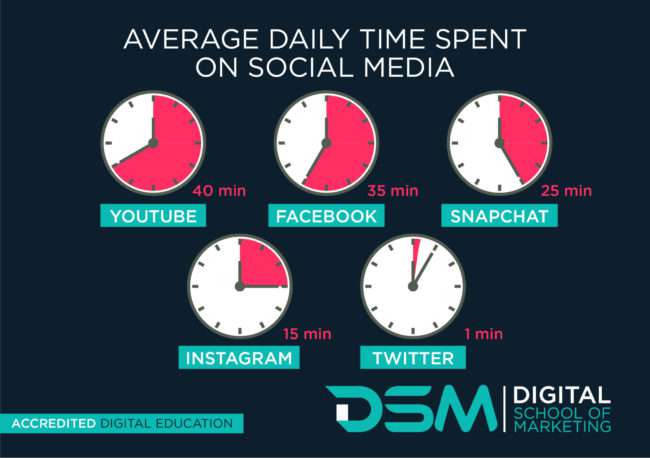
How do social media companies make money? This article includes information about advertising, sponsored content and premium memberships. Learn more if this interests you. You will be surprised at the answer. The answer to "How do social-media companies make money?" is surprising. You will be surprised, too! You can generate income via social media by keeping your followers active. We will be examining some of these main revenue streams in the following sections.
Advertising
How does social media make money? Facebook, for example, has 2.9 billion monthly active users. That's a lot more people than you might think to be looking at your advert. The reality is that social media companies earn money through advertising. However, they sell user data and not personally identifiable information. This data is sold to advertisers for various purposes, including brand building, targeting specific audiences, and more. This article examines the various ways these companies make their advertising dollars.

Sponsored content
Social media companies have many options for making money. One way is through sponsored content. Influencers can sell advertising space and editorial space to brands. Influencers may also be able to commission other people to create content. One example is Gritty Pretty, a beauty website and digital magazine founded by Eleanor Pendleton. She works closely with brands to create content for editorial and sponsorship. She sells advertising space but also creates content for her followers.
Premium Memberships: Upcharges
Chris Messina, the original creator of the hashtag, was not the only person to question whether social media companies would soon be charging premium memberships. A free version would likely not convince users that they should pay for the premium service. Some tech companies, like YouTube, Facebook, Twitter, and Facebook, have survived and thrived with subscription-based rollouts. Is this a good thing? Here's how premium memberships work in real life.
Data brokers
Data brokers sell consumer data to companies. They can target ads to specific interests and your habits. You can choose to restrict the data companies have access by sharing less information on social networks. These services represent a huge industry with a total value of over $200 billion. To avoid creating negative digital footprints, be careful who you give permission to and limit the information you share publicly.

Affiliate links
You are not the only person who is curious about how social media companies make money from affiliate links. This revenue stream is a massive source of advertising revenue. Although most people are aware that affiliate links can generate revenue, many are not sure what it means. These pitfalls are avoidable if you follow these tips. Make sure your social marketing strategy aligns to the goals of your affiliate programme.
FAQ
Do I need my domain name to create my website?
Yes. Before you launch your website, it is necessary to register your domain.
Domain names cost around $9 per year. A dot com domain will cost you around $39 per year.
How much do online affiliate marketers make?
An average online affiliate marketer makes between $0-$100k annually.
The majority of these people are self-employed and have their websites.
They use many methods to promote products such as banner ads, text hyperlinks, contextual advertising search engine optimization (SEO), and social media marketing.
Most affiliates earn between 50-$100 per sale.
Affiliates can earn up to $1000 per sale.
Which is the best affiliate program?
Are you interested to make money online
If so, then you're in luck! There are many online ways to make some extra money. Some methods work better then others. But no matter which method you use, there's always room for improvement.
Affiliate marketing is one way I love to make money online. Affiliate marketing allows affiliates to earn commissions based on the sales they generate through their websites.
Affiliates often sign up to free accounts with companies offering affiliate programs. Then, as long as they generate enough sales, they keep earning commissions.
Let me give you some examples.
A blog that focuses on cooking could make you an Amazon.com Affiliate. They get a small percentage of any total purchase made by visitors to Amazon.com.
If you are interested in selling makeup, you can become an associate with Sephora.com. If you have a website that sells makeup, you will get a cut for each product sold.
There are many affiliate programmes available. The trick is to find those that pay well.
These two websites are worth checking out. They list thousands affiliate programs and rank them based on their payout rates.
These sites are great for learning more about affiliate market. You don't have to risk anything by signing up for the free affiliate programs. You just need to give it a try and see if you like it.
Statistics
- The latest stats show that 87% of marketers use email marketing to distribute content. (shopify.com)
- According to the Baymard Institute, 69.82% of shopping carts are abandoned. (shopify.com)
- According to research from Adweek, over half (51%) of TikTokers make purchases from brands they see in the app. (shopify.com)
- A recent study by Mediakix revealed that 80% of marketers find influencer marketing effective. (shopify.com)
- Backlinko found that the #1 organic result is 10 times more likely to receive a click compared to a page in spot #10. (shopify.com)
External Links
How To
Pros and cons of affiliate marketing
Affiliate marketing is performance-based marketing where affiliates receive compensation from advertisers when they direct traffic to them through their websites. The most common form of affiliate marketing is pay-per-click (PPC). Other forms of affiliate marketing are cost per action (CPA), Cost per Lead (CPL), as well as cost per Sale (CPS).
Affiliates need not have any specific skills or knowledge to make sales. They need only a website and some promotional materials. There are also many drawbacks to affiliate marketing. For example, you must have many visitors to your site to make money. It is also necessary to invest time in content development and promotion of your site. Affiliate programs can be difficult to set up and manage. This means that most affiliates start small before expanding into full-time companies.
Pros:
-
It is easy to get started, and there is no upfront investment.
-
No commitment of any kind.
-
Low risk.
-
Easy to scale
-
It can be used by beginners.
-
No need to understand the business model behind it.
-
It is possible to use it as a passive income source.
-
You don't need to worry about customer support.
-
It allows you to create a flexible schedule.
-
You can work wherever you are.
Cons:
-
It takes time to grow.
-
You may have a difficult time competing with larger companies.
-
It requires patience.
-
It is not recommended for everyone.
-
You cannot control the product quality you promote.
-
It is hard to measure results.
-
It can get expensive to run if you don't know what you're doing
In conclusion, affiliate marketing is a great way to make money online. Affiliate marketing is one of easiest ways to get started in online entrepreneurship. But it requires dedication and a lot of work to succeed. You can learn more on affiliate marketing by reading the following posts.